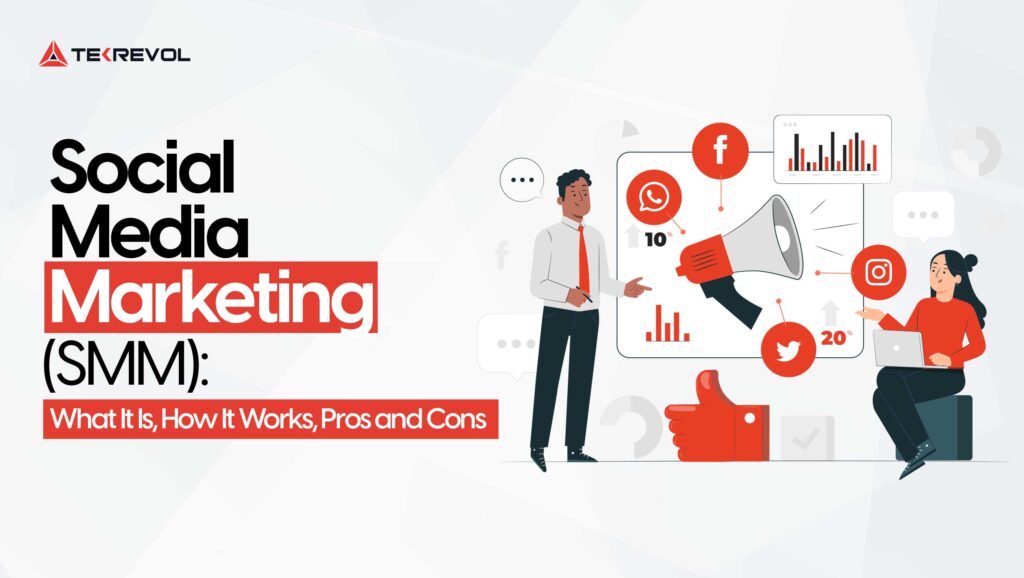1. Introduction: Understanding What Is SMM
In today’s digital-first world, businesses cannot afford to ignore the power of social media. From small startups to global brands, social platforms are where audiences live, interact, and make decisions. That’s why many business owners often ask: What Is SMM?
The term SMM stands for Social Media Marketing. It’s a strategic process of using social platforms like Facebook, Instagram, LinkedIn, TikTok, and X (Twitter) to promote products, connect with audiences, and grow brand visibility.
This guide will break down exactly what is SMM, why it matters, and how you can use it to achieve business success.
2. What Is SMM? The Basic Definition
Social Media Marketing (SMM) is the practice of creating, publishing, and analyzing content on social platforms with the goal of building relationships, generating leads, and driving sales.
It covers both organic efforts (like posting engaging content, replying to comments) and paid campaigns (ads, sponsored posts).
At its core, SMM is about leveraging social platforms to deliver value—through information, entertainment, or direct interaction with your audience.
3. Why SMM Matters for Businesses Today
Still wondering why SMM is so important? Consider these reasons:
-
Massive Reach: Over 4.9 billion people use social media in 2025.
-
Cost-Effective: Organic posting is free; even ads cost less compared to traditional media.
-
Direct Communication: Brands can talk directly to customers without barriers.
-
Trust Building: Consistent presence builds credibility and loyalty.
-
Trend Relevance: Social media keeps businesses visible in trending conversations.
4. Core Elements of Social Media Marketing
Content Creation
Content is the backbone of SMM—posts, videos, stories, reels, and infographics all shape how your brand communicates.
Community Engagement
Replying to comments, running polls, and building conversations foster strong customer relationships.
Paid Advertising
Social ads (Facebook Ads, Instagram promotions, LinkedIn campaigns) help target exact audiences.
Analytics and Tracking
Platforms like Meta Business Suite or Google Analytics reveal what’s working and what needs adjustment.
5. Types of SMM Strategies
SMM isn’t “one-size-fits-all.” Depending on your goals, you can apply different strategies:
-
Awareness Strategy: Boost brand visibility with high-reach campaigns.
-
Engagement Strategy: Focus on interaction (likes, shares, comments).
-
Conversion Strategy: Drive sales or leads with targeted ads.
-
Retention Strategy: Keep existing customers engaged with valuable updates.
6. Benefits of SMM for Businesses
-
Increases brand awareness.
-
Builds a loyal community.
-
Generates quality leads.
-
Improves customer support (via direct messaging).
-
Enhances SEO ranking through social signals.
-
Drives website traffic and conversions.
7. Proven Tips to Build a Strong SMM Campaign
-
Define clear goals (traffic, leads, engagement).
-
Know your audience demographics.
-
Choose the right platforms (LinkedIn for B2B, Instagram for lifestyle brands, etc.).
-
Maintain a consistent posting schedule.
-
Use visuals and short-form videos.
-
Leverage user-generated content.
-
Track performance and optimize regularly.
8. Common Mistakes to Avoid in SMM
-
Posting without a strategy.
-
Ignoring audience feedback.
-
Over-promotion (selling too much, engaging too little).
-
Inconsistent branding across platforms.
-
Not analyzing performance metrics.
9. SMM vs. SEO: How They Work Together
Many businesses ask whether they should invest in SMM or SEO. The truth is—they complement each other.
-
SEO improves search visibility over time.
-
SMM generates quick traffic and engagement.
For best results, businesses should integrate both strategies—just like explained in our guide on [Pay Per Click vs SEO: Which Is Better for Your Business?].
10. Tools and Platforms for Effective SMM
-
Canva: For designing graphics and posts.
-
Hootsuite / Buffer: For scheduling and managing posts.
-
Meta Business Suite: For Facebook and Instagram insights.
-
LinkedIn Campaign Manager: For B2B lead generation.
-
Google Analytics: For tracking social traffic.
11. Final Thoughts: Mastering SMM for Growth
So, what is SMM in simple terms? It’s the art of turning social media platforms into growth engines for your business. By creating engaging content, building communities, and running strategic campaigns, brands can drive awareness, loyalty, and revenue.
In 2025, businesses that ignore social media risk falling behind competitors. But with a clear strategy, the right tools, and continuous optimization, SMM can be one of the most cost-effective and impactful marketing channels available.
Follow Us On:- Instagram.


